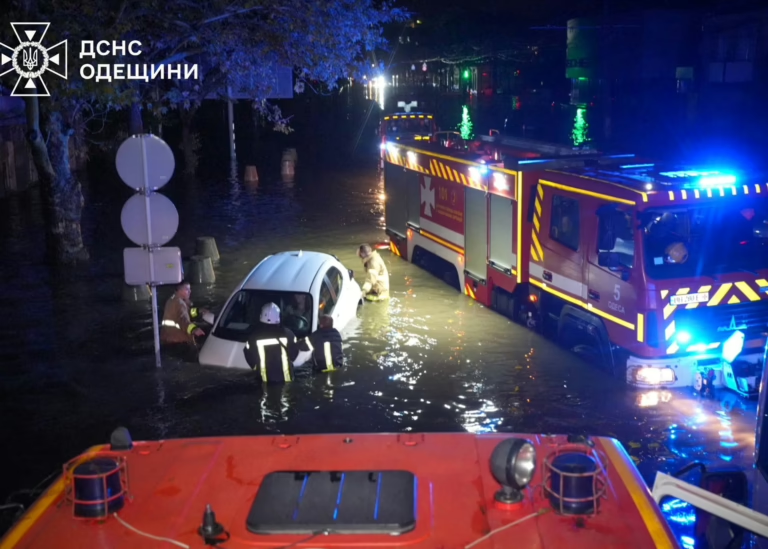Over 350 individuals were saved after the southern Ukrainian city experienced rainfall equivalent to two months’ worth in just seven hours.
Published On 1 Oct 2025
Tragically, at least nine fatalities, including a young child, have been reported following intense flooding caused by a powerful rainstorm in Odesa, a city in southern Ukraine, according to the nation’s emergency authorities.
Ukraine’s State Emergency Service confirmed that rescue teams have successfully evacuated 362 individuals trapped by the floodwaters, while also working tirelessly to remove water from submerged buildings.
Among those saved was a missing young girl, discovered early in the morning thanks to the ongoing relief operations.
Visual documentation shared by the emergency service depicted people being rescued from a bus stranded in floodwaters and vehicles being extracted from submerged areas.
Odesa’s mayor, Gennadiy Trukhanov, described the situation as challenging but manageable, emphasizing that the city endured rainfall in seven hours equivalent to nearly two months’ worth.
He noted on Telegram that “no existing storm drainage system could handle such an overwhelming volume,” and assured that rescue efforts are proceeding relentlessly without pause.
Forecasts predict additional adverse weather on Thursday, which may further complicate the efforts of Ukrainian emergency responders, now more than three years into the conflict sparked by Russia’s full-scale invasion.
In related developments, the southern city of Kherson’s local military administration reported a fatality resulting from a Russian strike on Wednesday morning.
Meanwhile, an overnight assault by Russian forces on Kharkiv, located in northeastern Ukraine, injured six people-including a police officer-and ignited multiple fires, according to national police reports.
Oleh Syniehubov, governor of the Kharkiv region, stated that five of the injured were hospitalized for medical care.
Footage from the scene showed firefighters battling flames engulfing market stalls, highlighting the destruction caused by the attack.
Across the border in Russia, Mikhail Yevrayev, governor of the Yaroslavl region, announced a fire at a local oil refinery.
Despite ongoing Ukrainian strikes targeting Russian oil infrastructure, Yevrayev insisted the blaze was unrelated to the conflict, attributing it instead to a technical malfunction.
“Residents feared it might have been caused by an enemy drone strike,” he said, “but investigations confirm the fire was due to operational issues.”
On another front, Ukrainian President Volodymyr Zelenskyy issued a grave warning about the Zaporizhzhia nuclear power plant, currently under Russian control, which has been without external power for seven consecutive days.
“This unprecedented situation has lasted a full week,” Zelenskyy stated during his evening address on Tuesday.
Rafael Grossi, Director General of the International Atomic Energy Agency (IAEA), confirmed ongoing communications with both Ukrainian and Russian parties aimed at restoring the plant’s connection to the electrical grid as swiftly as possible.
“While the facility is currently sustained by emergency diesel generators-the final safeguard-this is not a viable long-term solution for nuclear safety,” Grossi explained, emphasizing the urgency of the situation.

















